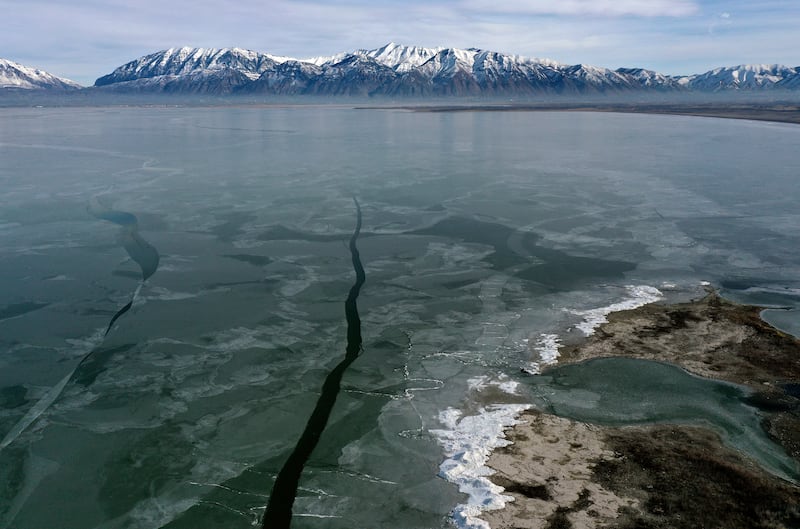Just when Utah County residents thought they had avoided the backroom deals to take over their beloved Bridal Veil Falls, it turns out there’s another plan — or at the least the process leading to a plan — that appears to be just as opaque and corrupt.
It’s been reported that Lake Restoration Solutions has filed a defamation suit against a Ben Abbott, assistant professor of ecosystem ecology at BYU, who has criticized a proposal to dredge Utah Lake and create islands with reclaimed sediment.
It appears LRS doesn’t want anyone to question its ideas, especially if it’s an expert like Abbott. So LRS has become a big-money bully and filed what amounts to a “strategic lawsuit against public participation,” or SLAPP lawsuit.
Even though local attorneys say Utah’s anti-SLAPP statute is weak and one of the least protective in the nation, if the speech Abbot is being sued over is intended to influence government policy or action, which it is, the law covers Abbott’s statements. Clearly, LRS should withdraw its suit and acknowledge its folly. Choking reasoned debate is neither the American way nor the “Utah way.”
There is a basic tenet in a democracy (republic if you prefer) that people have a right to participate in public discussion without fear or favor. It is shameful, and made even more shameful, that former and current public servants seem to tacitly support the lawsuit. The lead lobbyist on the case was once a chief of staff for Utah’s House Speaker. He knows better. Another is a legislator from Orem. On one hand lawmakers brag about their open, transparent and thoughtful process on Utah’s Capitol Hill, while giving a blind eye to an effort to squelch honest and informed questions.
To say that the plan to “restore” Utah Lake can’t withstand some scientific and public scrutiny is unconscionable. It’s not the first time officials and developers, with lobbyists in tow, have tried to silence critics who don’t share their grand visions. As a journalist covering the build up to the 2002 Olympics, I remember similar conversations and controversies when Utah built venues for hosting the Winter Games. Olympic boosters and public officials tried to hide discussions and documents, held numerous closed meetings and gave favors to IOC members. Well, most of us remember how that lack of transparency embarrassed Utahns. Let’s not repeat that mistake.
Any plan to make drastic changes to one of Utah’s largest lakes and ecosystem should involve environmental study, and an economic plan should be thoroughly scrutinized. The plan may be sound, but don’t try to hoodwink Utahns.
By filing this suit, LRS already is crippling its case in both the courthouse and court of public opinion. Journalists, scientists and the public have every right, and even an obligation, to question every inch of this plan.
In the end, let’s hope good science, good public debate, democratic ideals and solid policy win over well-heeled lobbyists and the lawmakers who take their money.
Joel Campbell is an associate teaching professor in journalism in Brigham Young University’s School of Communications.


